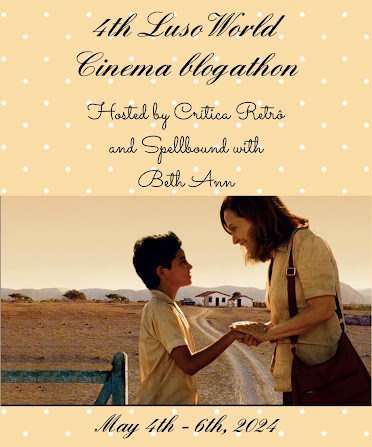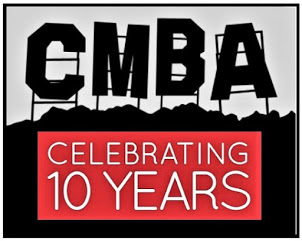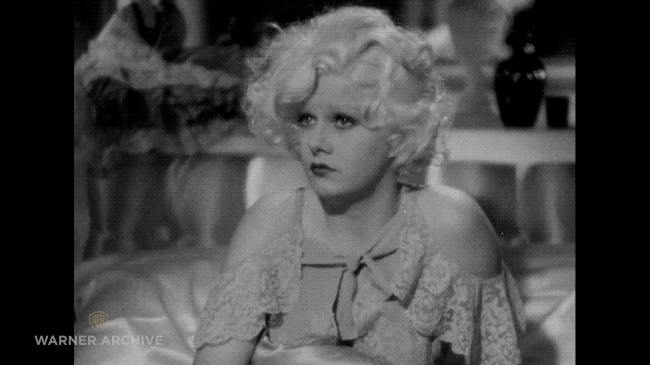
Ona Munson (R) wants to muss Joseph Schildkraut’s hair. Image: imdb.com
We’re feeling all smug because we just learned two Big Things.*
(*You’re probably familiar with these things already, but please humour us.)
Big Thing #1 Did you know The New York Times publishes a list of people in need over the holidays, and has done so for 105 years?
Big Thing #2 We learned about #1 from a new-to-us holiday film, The Cheaters (1945), a comedy we’d never heard of before. It focuses on a once-wealthy family who are facing bankruptcy and are scrambling to restore their Rightful Place in the Universe.
As you might have guessed from the title, there’s some deception involved.
Scratch that. There’s A LOT of deception going on. This film is a study in artifice: Nearly everyone has something to gain, whether it’s a place to hide from an angry landlord or the chance to score $5 million.
The film stars Eugene Pallette as a stressed-out Manhattan businessman who’s dodging his creditors, and Joseph Schildkraut as a former theatre star who’s become homeless and an alcoholic.
Schildkraut is invited into Pallette’s home for the holidays because Pallette’s daughter (Ruth Terry) has selected him from the aforementioned NYT Neediest Cases list. She’s suddenly developed a Social Conscience because her fiancé’s mother always takes in a “charity case” for Christmas and expects Terry to do the same.
Added to this bunch is a former showgirl (Ona Munson) who doesn’t realize she has the means to save Pallette’s family from bankruptcy – if she chooses to do so.

Oops! Santa’s been into the holiday Cheer.
The Cheaters has a witty and cynical script. In one scene, detectives are at Pallette’s office, grilling the secretary who feels such inquiries are inappropriate on Christmas Eve. “It may be Christmas Eve to you,” the detective says, “but to us it’s just Tuesday.”
In another scene, Schildkraut gets into an argument that launches him into a magnificent speech about how insulted he is; he’ll not stay in this house a minute longer! Then he leaves the room (with grand flourish), and runs into Pallette’s youngest daughter. She winks at him. “You kill me,” she teases.
Although the conclusion is a bit sanctimonious, there is a dark undercurrent in this film. Schildkraut is an embittered man, whose theatre career was ruined by a car accident. Before he is sent to Pallette’s house, he is told by a charity representative to be thankful towards Pallette’s family. Schildkraut is unimpressed. “Gratitude in most men is usually a secret desire to receive greater benefits,” he says.
There’s also the fab Billie Burke, who plays Pallette’s wife. She’s the spinny society matron we’ve seen before, but her performance here is more layered. She knows her family is trying to cheat Munson out of millions, and the guilt is starting to rattle her.
It’s Schildkraut who delivers the most chilling line. In a conversation with the butler, he lists his greatest stage accomplishments – Hamlet, Richard III, MacBeth…
Schildkraut: “But there was one part I’ve never played.”
Butler: “What was that, sir?”
Schildkraut: “God.”

Eugene Pallette (seated) needs a quick million – or five. Image: eBay
Ultimately, The Cheaters asks two questions:
- What do we hope to gain by giving to charity?
- How do we expect people to react when they receive charity?
To an outsider, Pallette’s family looks like the most benevolent clan in the neighbourhood. Terry gives shelter to Schildkraut, but it’s to showcase her moral superiority. Pallette brings Munson into the family because he’s determined to profit from her. Meanwhile, Burke is forever organizing stacks of Christmas gifts to remind everyone of her wealth.
Giving to others masks this family’s motives and, they hope, lends respectability to their fraud. Yet, in spite of their fumbling selfishness, a satisfying outcome is achieved.
We are thrilled to discover The Cheaters. It’s a smart, funny movie, and we hope it will become part of your holiday viewing.
Note:
According to IMDB: “Paramount originally acquired the rights to The Cheaters as a vehicle for Carole Lombard and John Barrymore. After Lombard’s tragic death [in 1942] the property was sold to Republic.”
The Cheaters: starring Joseph Schildkraut, Billie Burke, Eugene Pallette. Directed by Joseph Kane. Written by Frances Hyland. Republic Pictures, 1945, B&W, 87 mins.












Thanks! If there’s anything I love more than “new to me old movies”, it’s … well, I can’t think what it would be!
Merry Christmas and a very Happy New Year.
LikeLiked by 1 person
Haha! You said it. I can’t think of anything better, either. Best of the season to you and yours. 🙂
LikeLike
I discovered this little gem a few years back on TV. It’s great. Love Joseph Schildkraut
LikeLiked by 1 person
Joseph Schildkraut is a new discovery for me. But IMDB says he regretted doing this film – which I don’t get because he’s fabulous.
LikeLike
A little known Christmas film with a delightful cast. What an unexpected pleasure!
LikeLiked by 1 person
That’s exactly right – it truly was an unexpected pleasure. 🙂
LikeLike
Interesting! 😀
LikeLiked by 1 person
It really is an interesting film. One of my new faves. 😉
LikeLiked by 1 person
I saw this one in the 1970s and it was an instant favorite. I didn’t see it again until a couple of years ago when TCM did a special broadcast. It wasn’t quite as good as I remembered, but I still liked it very much and Joseph Schildkraut was excellent.
LikeLiked by 1 person
I loved Joseph Schildkraut too. I’d never seen him before, but I’m on the lookout for more of his films. Happy Holidays!
LikeLike
Merry Christmas! ^_^
LikeLiked by 1 person
Thanks! And to you, too!
LikeLike
Hmm, interesting. Will have to seek it out.
LikeLiked by 1 person
It really is an interesting film. Schildkraut’s character really is rather dark, but he doesn’t weigh the film down. He’s a marvelous character foil to Billie Burke’s cheerfulness. I hope you get the chance to check it out. 🙂
LikeLike
This looks really good! And, no, I’ve never heard of it. Love this line: “It may be Christmas Eve to you,” the detective says, “but to us it’s just Tuesday.”
Happy New Year! 🎉
LikeLiked by 1 person
Some terrific lines in this film. The speech at the end is a bit heavy-handed, I thought, but the rest of the script makes up for it. As I was watching this film, I thought, “Where has this movie been all my life?”
Here’s to 2017! I hope all good things will be yours this year. 🙂
LikeLiked by 1 person
I have to admit, Ruth, that I was thinking of letting this one pass me by. I just didn’t find the premise interesting. Then I saw that Billie Burke costars. Well, that changes everything. Look out Netflix! Here I come. Thanks, Ruth!!
LikeLiked by 1 person
I really like Billie Burke in this film. Her character is a familiar one, but her role here is more nuanced. Plus, she is just so darn funny. I hope you can find a decent copy to watch. There’s a free version on YouTube, but the sound quality isn’t that great.
LikeLike
Reblogged this on WILDsound Writing and Film Festival Review.
LikeLiked by 1 person